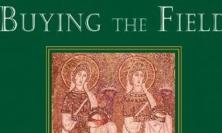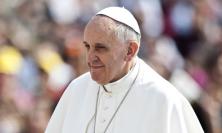Pope Francis’ latest encyclical, Fratelli tutti, was not addressed exclusively to men and women religious, but in its vision, as in much of the pope’s teaching, were many characterisations of the modern world that can helpfully shape the identity and mission of religious. In the second part of his article on consecrated life, Cardinal Michael Czerny SJ uses Fratelli tutti to ask: how are religious today invited to renew and deepen their following of Christ while contributing decisively to the mission of the Church?
With the teachings of Vatican II and the half-century of post-conciliar developments since, we now consider what Pope Francis has said and written to religious in various circumstances, along with key points of Fratelli tutti, published in 2020.
In the characteristic way that Francis speaks to religious, one perceives his personal experience as a religious, as a Jesuit, as a novice director and provincial superior. Yes, he captures the most urgent problems; he also shows that he knows, in depth, the most hidden fragilities and the latent riches. He also speaks with great realism and often humour, showing his own love for the life and ministry of the religious. He repeatedly declares: ‘Where there are religious there is joy’![i]
His experiential reading, therefore, means to identify practical ways for coming out of the impasse: to emerge from self-isolation to encounter the world, and especially to evangelise its realities of exclusion, poverty and suffering. This is where Pope Francis locates the possibility of rediscovering and re-expressing many dimensions of the life and mission of consecrated persons.
2.1 Testing charisms, starting out from mission again
In 2014, on the fiftieth anniversary of Perfectae caritatis, Pope Francis convoked a Year of Consecrated Life, in order to ‘propose again to the Church as a whole the beauty and value of this special form of sequela Christi.’[ii] From the outset, it became clear that the anniversary was meant not merely to celebrate, but to reflect on the relevance of consecrated life and the challenges it must face in the third millennium.
In order to show fidelity to the mission entrusted to them, in the diversity of charismatic expressions willed by the Spirit, religious must become missionaries in the contexts to which they are destined by the spirit of their institute: ‘All forms of consecrated life, each according to its characteristics, are called to be in a permanent state of mission.’[iii] The secret to helping charisms bear fruit, with God’s grace, lies in courageously confronting them with present realities, with history, with the experience of the men and women of our time.
A renewed impetus in the mission also preserves religious from falling into that dangerous ‘temptation of survival’[iv] that can ‘sterilize’ consecrated life. Clinging to survival transforms religious into fearful, reactionary disciples, and deprives charisms of their creative force, inducing them to defend ‘spaces, buildings, or structures, rather than making new processes possible.’[v]
This defeatist posture is ‘the spiritual euthanasia of a consecrated heart,’[vi] a mere ‘ars bene moriendi’[vii] (‘art of good death’). Such counter-testimony manifests itself in chronic tiredness, routine, internal divisions, seeking power and privileges, and unwise governance. Instead, religious must resume walking in the Lord, fix their gaze on him, ‘embrace the future with hope.’[viii]
Francis’ appeal is heartfelt: ‘Do not be closed in on yourselves, do not be stifled by petty squabbles, do not remain a hostage to your own problems. These will be resolved if you go forth and help others to resolve their own problems, and proclaim the Good News.’[ix]
2.2 Towards encounter and dialogue
Fratelli tutti is not explicitly addressed to religious men and women, because Francis did not want to ‘factionalize’ its message by specifying its recipients. Rather, he chose to address all people of good will, among whom are religious brothers and sisters. They are called upon to contribute to ‘the rebirth of a universal aspiration to fraternity’ (FT §8) with their distinctive commitment and their mission.
Advancing along paths of hope (FT §55) must be the believer’s strategy. It is the only way not to let oneself be engulfed by anxiety, by the difficulties of the moment.
It is possible to escape from the narrow confines of the present: enough to turn once again to Christ and open oneself ‘to the daily “havoc” of grace’.[x] Christ is the newness that makes all things new, as Francis repeatedly says, and whoever crosses his path cannot remain the same as before. One understands, in this sense, the centrality accorded to the category of encounter in the pope’s theological thought: in it the conciliar lessons on the primacy of divine election, on the universal call to holiness (LG §40), are summed-up and brought forward. And the entire exhortation Gaudete et Exsultate was written ‘to repropose the call to holiness in a practical way for our own time, with all its risks, challenges and opportunities’ (GE §2).
Francis highlights how the vocation to the consecrated life does not arise from a shrewd cost-benefit calculation but is a free gift that springs from the overabundant love of God and arises from ‘a life-changing encounter.’[xi] Precisely for this reason, it is vital to always return to the sources and ‘to retrace in our mind the decisive moments of encounter with him, to renew our first love.’[xii]
Mindful of the past and grateful for it, confident of the future and open to hope, religious must ‘live the present with passion,’[xiii] that is, without turning their eyes away from the tragedies of a wounded and lost humanity. In societies that seem to foster the clash between different cultures, in which social coexistence is compromised by inequalities and the systematic abuse of the weakest, ‘consecrated men and women are called first and foremost to be men and women of encounter.’[xiv]
In light of Fratelli tutti, this means collaborating in the creation of social bonds characterised by friendship and fraternity, acting in the fabric of civil coexistence as a link among the various different subjects who make it up.
Promoting a healthy culture of encounter is the prerequisite for achieving a social pact in which no one is denied rights and opportunities (FT §216-21). Religious men and women become artisans of a culture of encounter whenever they stand in defence of human rights and oppose the ‘throwaway culture’ (FT §19).
In Fratelli tutti, the theme of migration receives careful analysis. Francis does not hesitate to say that for Catholics to adhere to various forms of nationalist and xenophobic ideology is irreconcilable with an authentic believing life (FT §39). Attitudes of closure and intolerance make communication more difficult and hinder encounters between residents and newcomers. Instead, the task of religious is to help lay people get personally involved in accompanying men, women and children forced to flee.
Here is an urgent commitment to formation: to accompany the passage from a conception of society in which the foreigner is discriminated against, to an understanding of social coexistence in which full citizenship is guaranteed to all, helping those who are called upon to welcome them to go beyond their prejudices and preconceptions. Religious communities do very effective ministry in detention centres, across contentious borders, even accompanying their own people in flight: this is not to talk about human dignity but to demonstrate its protection and promotion in unmistakable terms.
Charity, which is always ‘capable of incorporating all these elements’ (FT §165), thus becomes key to sustaining integral human development, expanding the meaning of our existence, and generating a society open to integration.
2.3 Community life
Fraternity is one of the main themes that run through the magisterium of Pope Francis. Consider Evangelii gaudium (ch 4), in which the social effects of a joyful proclamation of the gospel are made explicit, or Laudato si’ (ch 5), which identifies five major streams of dialogue for a world that is more just towards people and more respectful of creation.
Although set within the horizon opened up by these magisterial documents, Fratelli tutti takes up and develops the Document on Human Fraternity for World Peace and Living Together and herein finds its formal basis for reflecting ‘together’. Co-signed by Pope Francis and Sheikh Ahmed el-Tayeb, Grand Imam of Al-Azhar, on 4 February 2019 in Abu Dhabi, the document represents an epochal turning point in the promotion of interreligious dialogue, as well as a milestone in the construction of a world that is more fraternal and more united.
Therefore, the programmatic value of Fratelli tutti is to be found in the firm decision to follow up and implement the teaching of the Council: universal fraternity and social friendship are for today’s world a ‘sign of the times’ (GS §4) and ‘humanity's new frontier’.[xv] The message of the encyclical aims precisely at launching ‘a new vision of fraternity and social friendship’ (FT §6) for every man and woman: to act towards others, near and far, as if we were choosing them as our brothers and sisters and friends.
In this new dream for the whole world, consecrated life takes on a specific value: to show the joy and beauty of fraternity, to find and share the ‘mystique of living together’ (EG §87). It reveals all its prophetic power as a ‘sign’ because it is from life in common that ‘the joy and beauty of living the Gospel and following Christ’[xvi] shine forth, and the dream of a new humanity is already being realised.
The reality of consecrated life as a sign finds in brother- and sister-hood the prophetic anticipation of a world in which unity is achieved while safeguarding differences, variety and mutual respect. True fraternity does not homogenise, rather it allows us to remain ourselves together with others (FT §100) and to discover that it is not possible to do without people who are ‘other’. Religious must witness to this appreciation of diversity, of the plurality of cultures and identities; witness to the friendship that aspires to universality, not as abstract, but as already a reality in their communities and works.
Hence the urgent call to safeguard religious life as sisters and brothers, preserving it from ‘criticism, gossip, envy, jealousy, hostility’ (EG §100).
What in Fratelli tutti Francis recommends to everyone applies especially to consecrated persons: dialogue, as a means of seeking the truth together and knowing it in its effective objectivity, overcoming every kind of ‘appropriation’ that limits it to a single point of view (FT §206); kindness, as an attitude of respect and a determination not to hurt others (FT §223); sincere, honest interaction in community, learning neither to impose one’s own opinions nor to undervalue those of others (FT §224); and intergenerational communication (FT §53, 199) in community can become a practical horizon in which to exercise the evangelical style of relating to others and give the world a convincing witness of communion.
Francis recommends that religious seek in common life a fruitful exchange between young and old, ‘never discarding whole generations’.[xvii] He notes the generalised lack of confidence in long-term planning. He expresses concern for the new generations. It is mainly the young who are conditioned by the distrust of those who preceded them towards planning the ‘common good’. A sort of disconnect takes place, an interruption, between the goals set by past generations and the ambitions with which young people tend to imagine the future.
Religious communities favouring fruitful encounter and communication between the different generations of their members can give prophetic witness to a world increasingly afflicted by inter-generational apartheid.
2.4 Religions in today’s world
The last chapter of Fratelli tutti is dedicated to religions and the decisive contribution they can make – all and together – ‘to building fraternity and defending justice in society’ (FT §271).
Because of the wealth of experience and the treasures of wisdom and spirituality that have accumulated down the centuries, religions have the right and the duty to intervene in social dialogue and public debate. Their voice must be appreciated and heard as much as that of business, politics and science (FT §275). Francis claims for the Church the public role of the mission proper to her and the active participation in working ‘for the advancement of humanity and of universal fraternity’ (FT §276).
The unique contribution of religions to today’s culture consists in their constitutive openness to transcendence. In the ‘spiritual capital’ (LG §43) handed down by the charismatic wisdom of religious life, we can recognise an irreplaceable service to the world: showing filial awareness, that is, recognising ourselves before God as daughters and sons of one Father. This can hasten and sustain the realisation of peace among all.
Once upon a time it used to be in the so-called ‘foreign missions’ that priests, sisters and brothers occasionally came into contact with believers of other faiths; today religious pluralism is a fact of life in practically every context, in nearly every society.
2.5 The challenge to inculturate
The contribution of religious to the Church’s mission of evangelisation and dialogue is fundamental. Today, more than ever, their real challenge is to participate actively in the inculturation of the faith.
On the one hand, overcoming the identification between Western culture and the Catholic Church, addressed in Gaudium et spes (GS §42), has made it possible to rethink the forma ecclesiae as unity in difference, in the manner of Trinitarian persons. On the other hand, it is true that the Church after Vatican II has shown a certain resistance to implementing this important principle.
For Francis, the revelation of God reverberates in every people, just as light refracts on the surface of a polyhedron (EG §235). Every cultural identity is ‘flesh’ in which the Word of God unveils the face of the Father. The final document of the Synod for the Amazon states firmly in paragraph 55 that it is necessary to reject ‘every colonial style of evangelization’ and to recognise that ‘seeds of the Word are already present in cultures’. Francis explains that unity is not uniformity, but a ‘pluriform harmony’ that assumes differences and values partiality, because ‘the whole is greater than the sum of the parts’ (FT §78). It is not just a matter of knowing others better, but of reaping what the Spirit has sown in them as a gift for us as well (EG §246).
In fact, the way in which a people through its cultural traditions expresses an ethos, that is, a global sense of life and death and a sapiential perspective on God and humanity, serves as a prerequisite for the proclamation of the gospel. Faith does not come with a predetermined cultural model, nor does it just juxtapose itself with the cultures it encounters. Faith informs them from within, precisely from that ethical-anthropological-spiritual core that is essentially theirs.
In today’s circumstances, then, Fratelli tutti provides the orientation for religious men and women, whose task of mediating is both delicate and necessary: to enter into the life of a people, first of all, to approach its customs and traditions with respect; to learn to know their cultural ethos, being near day by day and participating discreetly; and then to make explicit those contents and those sensibilities that allow the Christian message to take root and dwell there and manifest all the redemptive and regenerative power of God’s revelation in Jesus Christ.
The service to the evangelisation of culture cannot do without religious, because their presence on the ground and in context is indispensable for developing enculturated theology by processes of thematisation and systematisation of lived pastoral intercultural experience. Religious of every form and ‘family’ therefore have an essential mission of enculturating the faith and developing contextual theology: to interpret the faith and to discern the contents of a people’s ethos so as to forge theological categories with which to proclaim revelation from the perspective of that culture.
As their religious vocation and life ‘decentralize,’[xviii] so does the theology. Both involve an exodus from focus on the self, a giving of oneself without reserve, a becoming a receptive space for the other, thus following the disconcerting logic of the Incarnation.
This is the second part of an adaptation of a longer, more detailed article ‘Religious Life from Vatican II to Fratelli Tutti’ published in Review for Religious, 1, no. 1 (Summer 2021): 87-106 and available in English, French, Italian, Portuguese and Spanish at https://www.reviewforreligious.com/fromthejournal-czerny/
Cardinal Michael Czerny SJ serves as an Under-Secretary for the Migrants and Refugees Section of the Dicastery for Promoting Integral Human Development. Previously, he held numerous leadership positions in the Jesuits, including heading the Social Justice Secretariat at the Jesuit General Curia and founding the African Jesuit AIDS Network. He can be reached at [email protected].
[i] Pope Francis, Address to Meeting with Seminarians and Novices (6 July 2013).
[ii] Pope Francis, Message of His Holiness Pope Francis for the Opening of the Year of Consecrated Life (30 November 2014).
[iii] Pope Francis, Homily for the XX World Day of Consecrated Life; Conclusion of the Year of Consecrated Life (2 February 2016)
[iv] Pope Francis, Homily for the XXI World Day of Consecrated Life (2 February 2017).
[v] Pope Francis, Homily for the XXI World Day of Consecrated Life (2 February 2017).
[vi] Pope Francis, Address to Participants in the Conference Organized by the Congregation for Institutes of Consecrated life and Societies of Apostolic Life (4 May 2018).
[vii] Pope Francis, Homily for the XXIII World Day of Consecrated Life (2 February 2019).
[viii] Pope Francis, Apostolic Letter to all Consecrated People on the Occasion of the Year of Consecrated Life (21 November 2014).
[ix] Pope Francis, Apostolic Letter to all Consecrated People on the Occasion of the Year of Consecrated Life (21 November 2014).
[x] Pope Francis, Homily for the XXII World Day For Consecrated Life (2 February 2018).
[xi] Pope Francis, Homily for the XX World Day for Consecrated Life (2 February 2016).
[xii] Pope Francis, Homily for the XXIII World Day For Consecrated Life (2 February 2019).
[xiii] Pope Francis, Apostolic Letter to all Consecrated People on the Occasion of the Year of Consecrated Life (21 November 2014).
[xiv] Pope Francis, Homily for the XX World Day of Consecrated Life; Conclusion of the Year of Consecrated Life (2 February 2016).
[xv] Pope Francis, Video message for the first International Day of Human Fraternity (4 February 2021).
[xvi] Pope Francis, Apostolic Letter to all Consecrated People on the Occasion of the Year of Consecrated Life (21 November 2014).
[xvii] Pope Francis, Homily for the XXII World Day for Consecrated Life (2 February 2018). [Translation: author’s own]
[xviii] Pope Francis, Address to participants in the National Assembly of the Italian Conference of Major Superiors (7 November 2014). The Italian verb decentrarsi is reflexive, literally, to de-centre-self.






